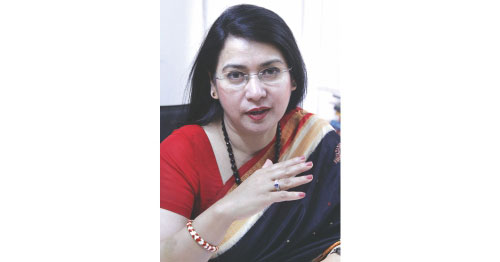Dr Fahmida Khatun, CPD Research Director speaks of how the recurrent political crisis in Bangladesh is hampering the country’s progress, published in The Daily Star on Sunday, 24 November 2013.
Stuck in a loop of political instability
CPD research director says Bangladesh is unable to progress due to political crisis every five years
Md Fazlur Rahman
The country is unable to make the most of its stellar growth prospects, due to the cyclical political instability, a leading economist said.
“It is very unfortunate for the country that it faces a huge political crisis every five years. We are trapped in this vicious cycle,” Fahmida Khatun, research director of the Centre for Policy Dialogue (CPD), told The Daily Star in an interview.
“We want true democracy and not just in name. The country has been practising democracy for more than 20 years, but instead of marching forward we are actually moving behind.”
She says the lack of political advancement is costing the economy dearly, while citing the below average growth forecast for the year, struck with political turbulence. Bangladesh now records on an average 6 percent growth in gross domestic product (GDP).
“Our expectation of raising our GDP growth to over 7 percent to become a middle-income nation will not happen in near future if the political situation continues like this.”
Fahmida, who did her Masters and PhD in economics from the University College London under the University of London, however, said the country has all the qualities to become a middle-income country. “Our human resources have high potential, even with so many political, natural and external odds.”
Economist Fahmida who also worked with UNDP and USAID missions in Bangladesh went on to call for a “free, fair and reliable election and political stability” for the sake of attracting foreign investment to the country. “Without investment, we are not going anywhere.”
The CPD researcher, who also served as a director of state-owned Janata Bank between 2008 and 2011, said there is “total indiscipline” in the financial sector, more so in state banks owing to political interference.
“Due to strong political influence, the state-owned banks cannot properly comply with the banking policies and rules and regulations—it is difficult to work independently there.”
Although the state banks went on a reform programme supported by the World Bank in 2007, it did not yield expected results “due to interference from a vested quarter and weak governance.”
“There is lack of accountability and transparency within the banks. There has not been automation, compliance and monitoring.”
She said the lack of any clear-cut authority for overseeing the activities of the state-owned banks is a glaring problem. “There is a strenuous relationship between Bangladesh Bank and the banking division under the finance ministry in supervising the state-owned banks.”
The private banks have problems of their own, too. “There is competition among the banks on how fast they can maximise their profits. In the process, they sometimes do not properly follow the banking norms and regulations and take care of the risk factors.”
The private banks, however, are not immune from political interference, as licences of the banks are “mostly given on political consideration”.
“So, private commercial banks can seldom withstand influence from political corners. Loans that are given under political pressure are mostly turned into bad loans.”
About the upcoming conference of the World Trade Organisation (WTO) in Bali, Indonesia, she said there has not been any progress since the Doha Development Round that was initiated 12 years ago.
“There has been no breakthrough in the negotiations over issues such as agriculture, market access and intellectual property rights, and it is because of lack of political commitment from the big world powers.”
Although there has been some improvement in areas such as trade in services since least developed countries have been given a waiver, but overall, the WTO negotiation is going nowhere. She also touched upon the Trade and Investment Cooperation Forum Agreement that the country is set to sign with the US.
“It is a sensitive issue for Bangladesh. But I think we should take an objective view,” Fahmida said, adding that many countries have signed the Ticfa.
“Rather than going into the details of the Ticfa, we are carried away by perceptions. There is misperception because there was no transparency. The government had the responsibility to let people know what is there and discuss the issue with experts, professional and trade bodies and other stakeholders.”
The researcher is of the opinion that not all of the clauses in the Ticfa are bad for the country. It has gone through some revisions by the concerned parties. “If we can improve the compliance to labour standards and ensure labour rights Ticfa might end up helping us boost bilateral trade, mainly garment exports.”
The bilateral platform should be utilised for augmenting Bangladesh-bound investment also.



